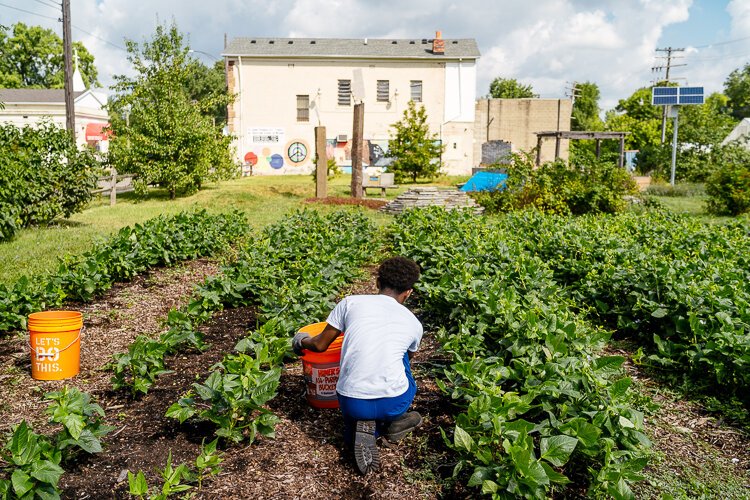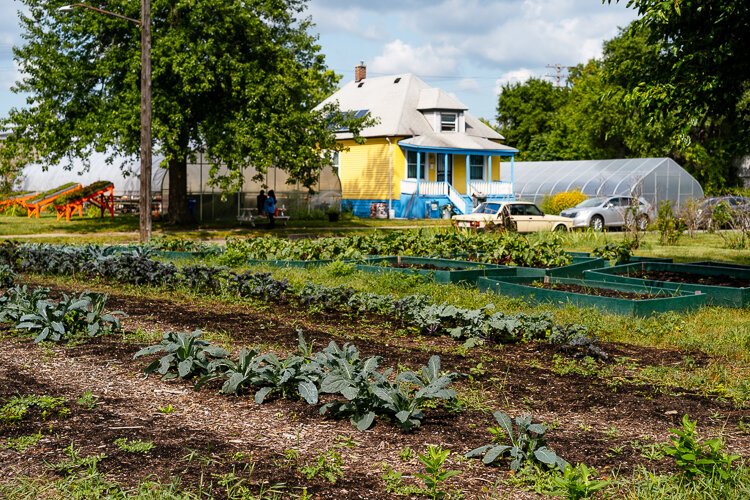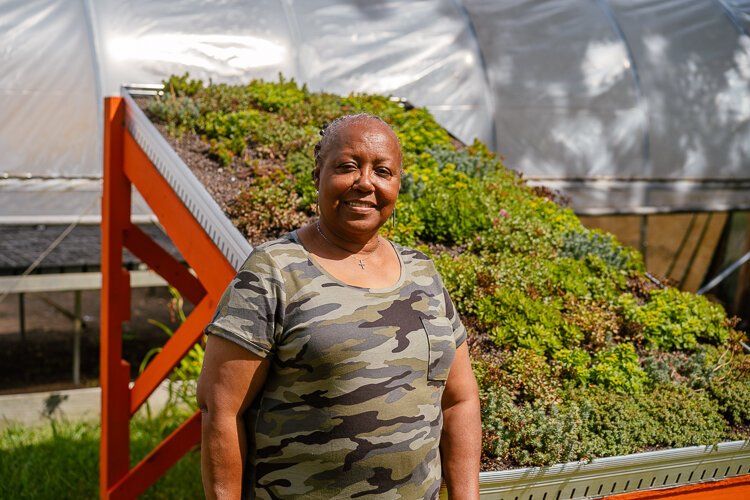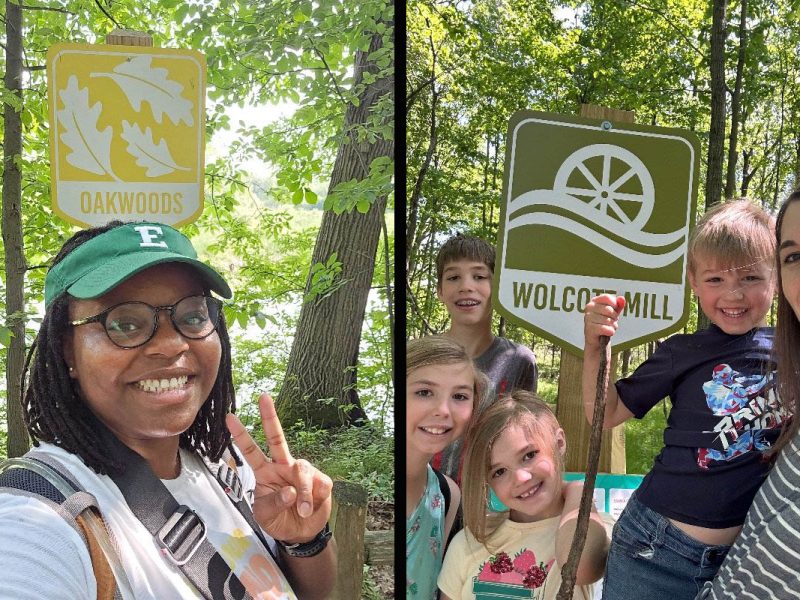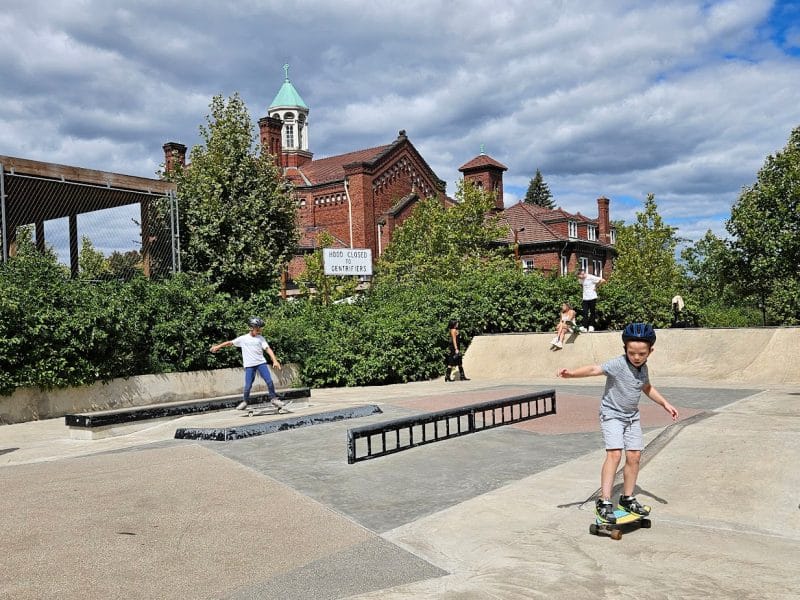How food advocates are nourishing the North End neighborhood
As the home of Oakland Avenue Urban Farm and the Detroit Black Community Food Security Network’s upcoming co-op, the North End is a model for what a food-sovereign city can look like.
With its community of urban farmers and an upcoming food co-op, the North End is a case study for how food can help revitalize a neighborhood and empower residents.
The neighborhood’s food culture is evolving at a time when a lot of changes are in store for North End. Located to the west of Woodward and bordering New Center, the North End has become an attractive real estate destination.
As the threat of gentrification and displacement continues to play out around the city, residents of the North End are working to protect the identity of their neighborhood and have control over its evolution. Today, it’s a melting pot of community development activity, driven by residents, which includes a new internationally inspired community housing model, an emerging retail corridor, and a rising hub for arts and tech innovation.
Along with looking ahead to the future, there’s also a conscious effort to preserve the neighborhood’s rich history. As a cultural hub in the mid-1900s, the North End had a bustling music scene and played host to legendary musicians such as Smokey Robinson and Aretha Franklin.
Farming is also ingrained in the North End’s history. As the home of Oakland Avenue Urban Farm and the Detroit Black Community Food Security Network’s upcoming co-op, the North End is a model for what a food-sovereign city can look like. It’s seen through projects like the future Detroit People’s Food Co-op and Oakland Avenue Urban Farm’s project to reactive public spaces, along with efforts to educate youth about agrarianism and agriculture.
A Co-op for the People, by the People
One of the North End’s highly anticipated developments is the Detroit Food Commons, a 30,000-square-foot complex that will include a café, community meeting space, incubator kitchen, offices for DBCFSN, and the Black-owned cooperative grocery store Detroit People’s Food Co-op. To be located at the southeast corner of Woodward Avenue and Euclid Street, the co-op’s new membership and outreach committee is working on an active campaign to recruit 1,000 members.
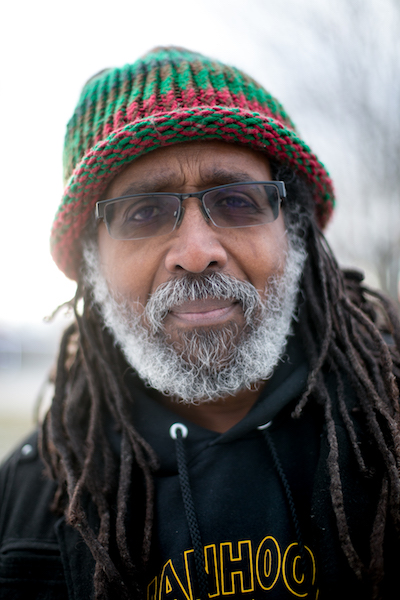
In March, a nine-seat board of directors for the Co-op was filled – six of whom were elected by the co-op’s current member-owners and three appointed by the parent organization, DBCFSN. With a fully seated board, it allows for active committees, like finance and development, and membership and outreach, led by board president Akua Woolbright, Ph.D.
Last September, the co-op board of directors had a two-day planning session with a co-op consulting company. The planning session focused on next steps for the co-op’s retail plan, including the floor plan, types of food to sell, and product mix. Another topic of discussion was about how to increase membership.
”The conventional thinking is that co-ops that open with 1,000-1,200 members are the ones that are the most sustainable,” Woolbright says. “Unlike grocery stores, co-ops are really meant to be something that the people are behind, that the community has shown a strong support for.”
Woolbright says that several action items came out of the planning session, meant to ensure that the co-op has brand recognition and support from the community.
“We want people to embrace this as their co-op,” she says. “Everybody who buys a membership, they have one share, one vote. So you own a piece of the Detroit People’s Food Co-op. We want people to feel that and to be excited by that.”
The co-op’s membership campaign is broken out into two phases. Phase I took place over the summer and consisted of:
- Identifying and attending events and activities around the city where the committee could go and talk about the coop.
- Hosting small, intimate gatherings, which Woolbright relates to oldschool Tupperware parties.
- Hosting “Coffee with the Coop” events, when the committee met with the public to talk about the co-op and becoming a member.
- Establishing themselves as a separate organization from DBCFSN by getting a new phone number, new office space, and a new website. People can now sign up to be a member through the website instead of having to mail in or drop off an application.
- of now, there are 382 members of the co-op (the membership number is updated daily on the website). Woolbright says that under Phase II, outreach will include social media marketing, and asking residents to help lead outreach to specific populations like the faith-based community, neighborhood block clubs, corporate, and Black fraternities and sororities.
Reactivating Oakland Avenue
Oakland Avenue Urban Farm is cultivating more than just fruits and vegetables. Currently, the existing structures on the 6-acre farm are being rehabbed into public spaces that will also revitalize the once-thriving commercial district along Oakland Avenue. The redevelopment project includes:
- Renovating the historic Red’s Jazz Shoe Shine Parlor, as well as reopening a speakeasy in the back of the building, where Motown artists were known to perform.
- Designing a hostel to provide overnight accommodations for the 5,000 international visitors the farm receives each year. The hostel will also have a mixeduse kitchen that guests can use, but it will also be open to chefs who need a location for pop-ups and parties. Oakland Avenue Urban Farm is seeking funding for the hostel.
“It’s focusing on building out our built environment so that we are getting these properties renovated, occupied, and income producing,” says Jerry Hebron, executive director of Oakland Avenue Urban Farm. The redevelopment project is intended to stay in line with the goals of the farm, which includes not only growing food, but educating the community, cultivating artists, and creating opportunities for economic development.
“If we are looking to provide workforce development opportunities for people in our community, and help them resolve some of the gaps that they are experiencing that prevents them from a traditional type of employment, then we have to make sure that we have a certain level of sustainability,” she says.
After September, Hebron says a request for proposal will go out to hire a consultant to come into the neighborhood and develop a community framework plan.
“We’ve been meeting for the last two years as a community to prepare for that,” she says. “And now that it’s actually happening, we are really trying to stay in front of what happens with the framework plan, making sure that our voices are heard.”
Teaching Agriculture to the Next Generation
Jamii Tata believes in empowering young adults through literacy, storytelling, entrepreneurship, and agriculture. As the founder of Know Allegiance Nation (KAN) — which Tata describes as a “village building enterprise”— and owner of KAN Books, he works with youth ages 7-18 in areas like his poetry and entrepreneurship program called Illuminate (which has an open mic series), broadcast journalism, gardening, and agrarianism.
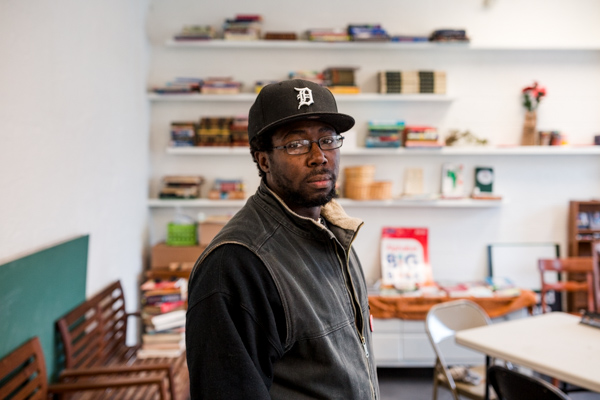
“We teach young people specifically about having access to land,” he says. Tata does this by teaching youth how to navigate the Wayne County land auction. “It’s really important for us to understand who owns the land, who traditionally has been kicked off the land for ownership to happen, and the dynamics of power [in order to] be a player in the land ownership game.”
Tata also teaches about having alternative access to land through gardening. Kids learn about growing food at the Firehouse Garden, located at 8211 Beaubien St. The garden is next to a nine-decade-old firehouse station. The owner let the community build a garden on the property in 2010.
“We’re leasing the land, if you will, just by taking care of it,” Tata says.
One of those young adults who helps to care for the garden is Deena Allen. Allen, 17, initially got into gardening with her mom as a way for the two to spend time together. She started working in the firehouse garden about five years ago, and now helps Tata to manage it. Depending on the season, her schedule, and what needs to be done, Allen works in the garden between 1-5 times a week.
“I think it’s just amazing to think about how you can have this thing that almost looks like nothing and have it grow into something that nourishes and feeds other people,” says Allen, who enjoys harvesting the food.
Besides the garden work, Tata also carves out time for the kids to write poetry in the garden. He teaches them how to take produce to Eastern Market and sell it. The kids get to know other farmers across the city and learn about cooperative economics.
“My goal is to make sure that the young people are highly involved in this movement to not only grow food, but to teach ourselves about having sovereignty in this food arena,” he says, “and to not be dependent on a community that may not have grocery stores, but it doesn’t mean that we’re locked out of access to food.”
This article is part of a series where we revisit stories from our On the Ground installment and explore new ones in the North End. It is supported by the Kresge Foundation.
